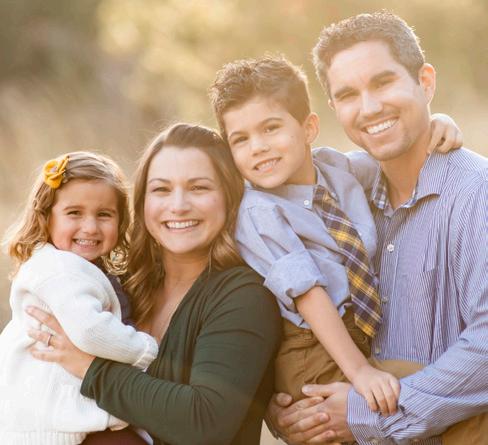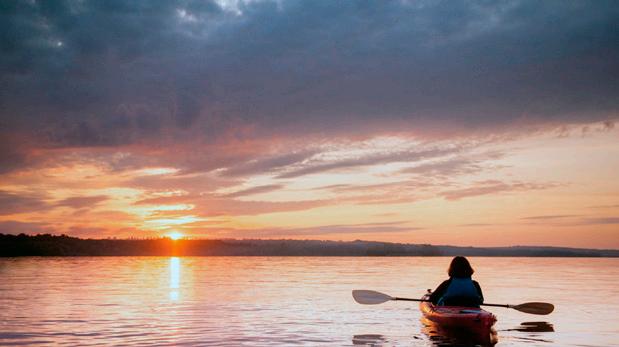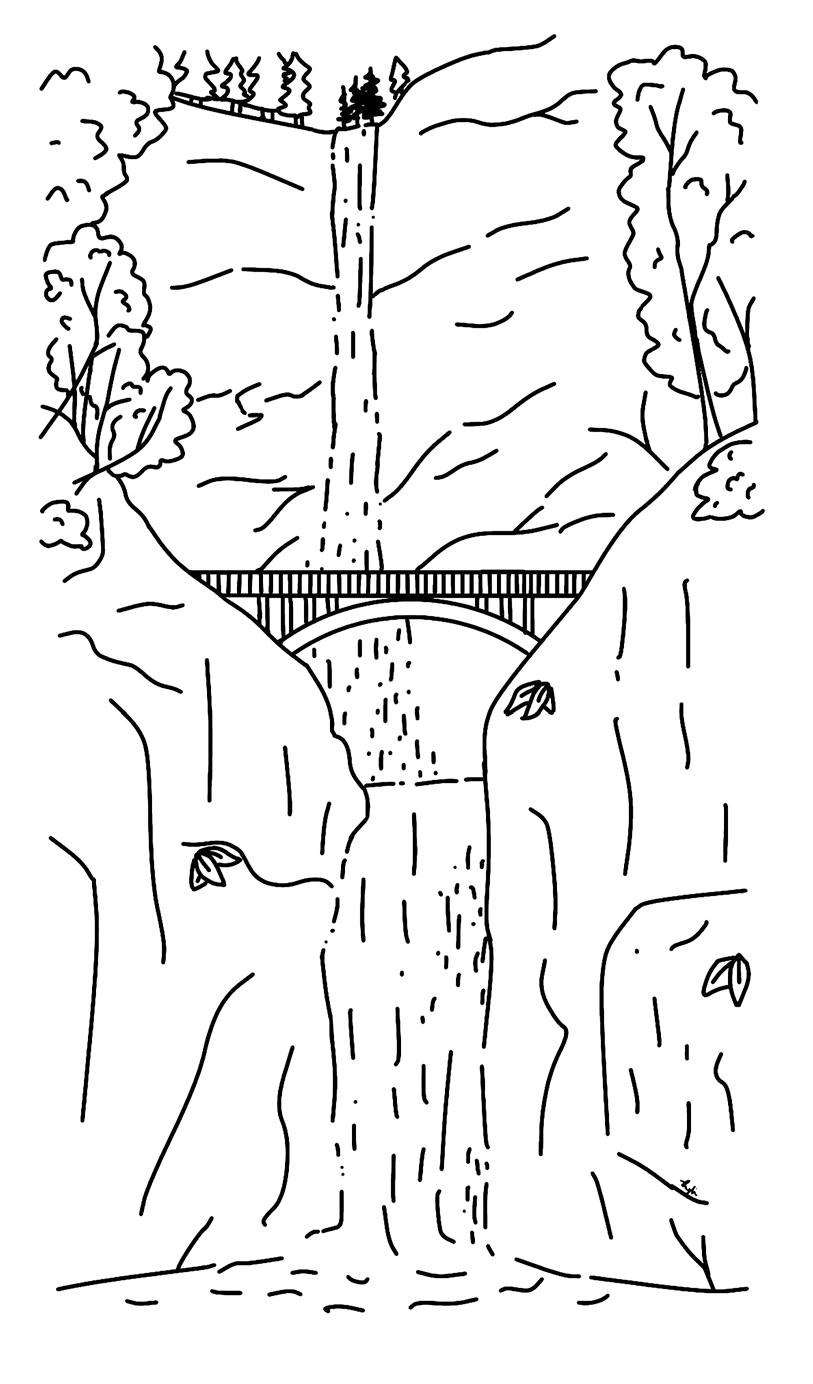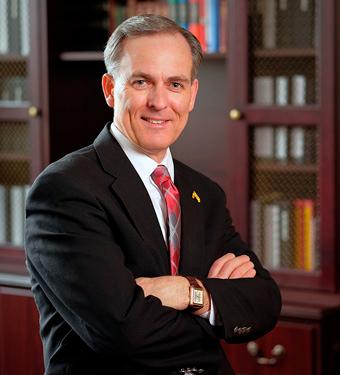
8 minute read
Benefit of the Doubt, Part 2
Doubt is not always a sign that a man is wrong; it may be a sign that he is thinking.” Oswald Chambers
I read a story in the New York Times about a pastor in the Bible belt who became an atheist leader. 1 His name is Jerry DeWitt. He first experienced doubts about his religious beliefs when he questioned the idea of hell.
He could no longer worship a “god” who would torture people forever, but he was convinced that was what the Bible said. When he expressed his doubts, many people in the church, the people he loved, basically damned him to hell. Because of his doubts, he lost his marriage, his job and his friends.
I empathized with this pastor and posted his story on Facebook. I thought I could challenge friends who read it to be merciful to those who doubt, but some people argued that I shouldn’t be sympathetic. They wondered why I would defend an atheist who was “leading many people astray.”
I believe wrestling with questions is the best way to learn. A math book helps you learn math by giving you problems. If you only memorize the answers in the back you don’t learn the math. Likewise rehearsed answers AUTHOR Kevin McGill

for Bible problems don’t help. Giving people answers without helping them wrestle with the questions isn’t education — it’s indoctrination.
Before judging someone for not believing in God, we should seek to understand the “god” they don’t believe in. We need to stop arguing for the existence of God until we can understand the true character of God. In many cases we should be affirming people’s unbelief rather than arguing against it.
Heather Thompson Day, a communication professor, shares an example of what this may look like. She had a conversation with a secular friend who said, “I don’t like this idea that there is this man
PERSPECTIVE

who demands my worship. It makes me feel uncomfortable.”
Heather replied, “But God is not a man. God is love.”
Her friend paused in reflection and said, “I could worship love … that makes sense to me.” 2
Many times when we argue with people over terminology, we miss an opportunity to listen and connect to their heart. As mathematician Blaise Pascal said, “The heart has its reasons, which reason does not know. It is the heart which experiences God, and not the reason.”
Author Donald Miller demonstrates in his book Blue Like Jazz what it means to connect to the heart: 3
In a recent radio interview I was sternly asked by the host, who did not consider himself a Christian, to defend Christianity. I told him that I couldn’t do it, and moreover, that I didn’t want to defend the term. He asked me if I was a Christian, and I told him yes. “Then why don’t you want to defend Christianity?” he asked, confused.
I told him I no longer knew what the term meant. Of the hundreds of thousands of people listening to his show that day, some of them had terrible experiences with Christianity; they may have been yelled at by a teacher in a Christian school, abused by a minister, or browbeaten by a Christian parent. To them, the term Christianity meant something that no Christian I know would defend. By fortifying the term, I am only making them more and more angry. I won’t do it. Stop 10 people on the street, ask them what they think of when they hear the word Christianity, and they will give you 10 different answers.
How can I defend a term that means 10 different things to 10 different people? I told the radio show host that I would rather talk about Jesus, and how I came to believe that Jesus exists and that He likes me. The host looked back at me with tears in his eyes. When we were done, he asked me if we could go get lunch together. He told me how much he didn’t like Christianity, but how he had always wanted to believe Jesus was the Son of God.
Christianity isn’t about defending theological terms. Christianity is about helping people find life-changing encounters with Jesus. The greatest argument for Christianity today is loving and lovable Christians 4 who point people to a loving and lovable God.
Give the benefit of the doubt, seek to connect with others before trying to correct them. Prioritize defending hurt people above defending theological opinions. Be empathetic.
Dietrich Bonhoeffer expressed it like this: “Nothing that we despise in other men is inherently absent from ourselves. We must learn to regard people less in the light of what they do or don’t do, and more in light of what they suffer.”
Jude, the brother of Jesus said it best: “Be merciful to those who doubt.” 5
1. Robert. F. Worth, From Bible Belt Pastor to Atheist Leader, Aug. 22, 2012, nytimes. com/2012/08/26/magazine/ from-bible-belt-pastor-toatheist-leader.html. 2. Theology in the Raw Podcast,
“Effective Communication, the Seventh-day Adventist Church, and Politics, prestonsprinkle.com/theologyin-the-raw/776-heatherthompson-day. 3. Donald Miller, Blue Like Jazz:
Nonreligious Thoughts on
Christian Spirituality, p. 115. 4. Ministry of Healing, p. 470, https://m.egwwritings.org/en/ book/135.2462. 5. Jude 22. Kevin writes from Troy, Idaho. He shepherds three churches and loves spending time with his family.
PERSPECTIVE
RESOURCES OF FAITH, CARRIERS OF PEACE

ur vision for 2020 has been irreparably altered. Plans have been canceled.
Homes have become fortresses. Snide asides about toilet paper being worth its weight in gold are increasingly less funny.
The complacent cocoon we have nurtured, that implies life goes on as always, has been exposed. Individual crises do that all the time — a sudden cancer diagnosis, an unexpected job termination, a cheating spouse unmasked.
But a global challenge that threatens the infrastructure upon which we have blithely depended? That’s something most of us, apart from our vanishing World War II generation, have never experienced.
A microscopic intruder has silently interrupted our naiveté. We are not as invulnerable as we thought.
Perhaps our relative affluence has insulated us from the life-and-death struggle others have historically endured. Your 401k may be groveling in the dust, but it’s beyond comprehension for the refugee woman who daily stands in line for a cup of rice. A home quarantine is frustrating, but it pales in light of the Dachau death camp. My livestream and Zoom church connections are a luxury never afforded to the Waldensian believers.
Lest we imagine these are unprecedented times, we are confronted with the same choice as other generations facing war, financial depression, famine or disease. Simply: When our jobs, our finances and our very lives are at stake, how do we escape the paralysis of fear and instead choose active steps of faith?
Fear is often our automatic reaction to circumstances spiraling out of our control. Empty store shelves are stark testimony that fear prompts us toward acts of self-preservation, in an effort to answer all the “what ifs.” But when, like Peter sinking under the waves, we acknowledge our fear and cry out, “Lord, save us or we perish,” we allow God to build our faith on resources far bigger than our fears. It’s why the apostle Paul could confidently exclaim, “We are hard-pressed on every side, yet not crushed; we are perplexed, but not in despair; persecuted, but not forsaken; struck down, but not destroyed” (2 Cor. 4:8,9).
Will this present crisis teach us anything of eternal value? The foundation of God’s kingdom, the DNA we must have as His followers, is loving God with all our hearts and our neighbors as ourselves in the best and the worst of times. A relentless commitment to these fundamentals will help bolster local communities physically, financially and mentally shaken to the core. Resolve to become a leader in helpful habits and safe practices. Remain digitally connected with others. Stay informed through credible sources, but refuse to let a sensational media diet turn your eyes from faith to fear. “Peace I leave with you,” Jesus says. “My peace I give to you; not as the world gives do I give to you. Let not your heart be troubled, neither let it be afraid” (John 14:27).
Our Savior has not left us to navigate these waters alone. As we feed on His words, we will become carriers, not of a viral scourge, but of His peace, a healing balm for those seeking something safe and secure. Steve Vistaunet, Gleaner editor emeritus AUTHOR Steve Vistaunet
O
“I HAVE SOUGHT FULFILLMENT FROM [COSTCO/ WALMART/FRED MEYER/AMAZON], BUT FROM WHERE DO MY RESOURCES REALLY COME? MY HELP COMES FROM THE ONE WHO CREATED ALL THAT IS GOOD.” Psalm 121:1,2 (recent paraphrase)

JUST FOR KIDS

THE PACIFIC NORTHWEST is home to beautiful examples of God’s amazing creation. Multnomah Falls is one such spot. This spectacular waterfall is perched along the scenic Columbia River Gorge, east of Portland. One of our Northwest Pathfinders drew this lovely picture of the falls for you to color. Ask your parents to post your finished masterpieces on Instagram. Be sure to tag us: # NWAventists # NWGleanerKids
Fast Falls Facts
ELEVATION: 627 feet TYPE: Tiered
TOTAL HEIGHT: 620 feet HEIGHT OF LONGEST DROP: 542 feet
AVERAGE WIDTH: 10 feet NUMBER OF DROPS: 2
AVERAGE FLOW RATE: 150 feet 3 /second
WATERCOURSE: Multnomah Creek
WORLD HEIGHT RANKING: 434
https://kids.kiddle.co/Multnomah_Falls
North Pacific Union Conference 5709 N. 20th St. Ridgefield, WA 98642
gleanernow.com
PERIODICALS
You Are Not Alone











